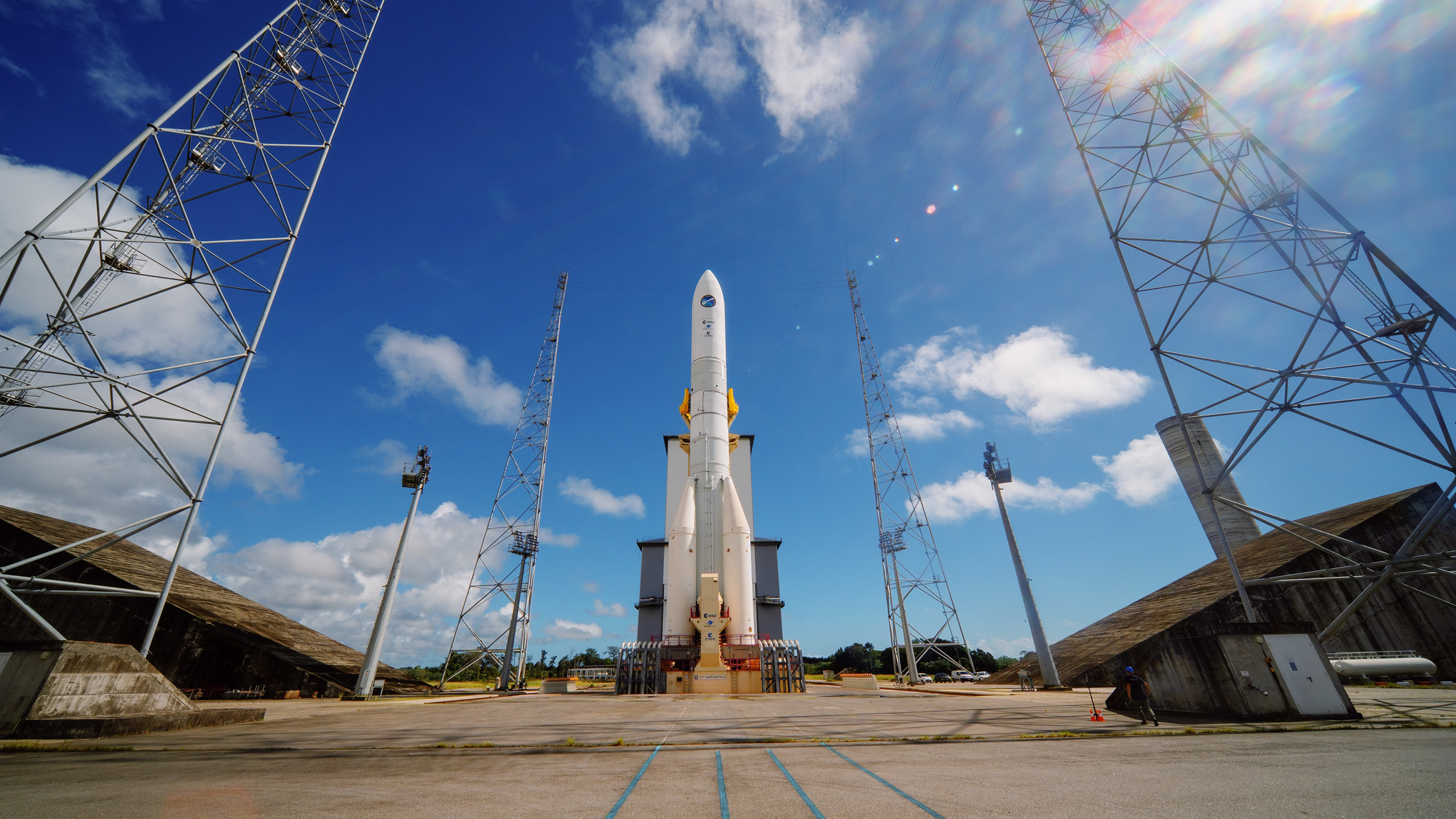Europe Wants to Wean Itself off SpaceX
A new kind of European rocket plans to take off from the European Space Agency’s launch pad in French Guiana.

Sign up for smart news, insights, and analysis on the biggest financial stories of the day.
Stars, in your multitudes, scarce to be counted…
Today, all being well, a new kind of European rocket plans to take off from the European Space Agency’s launch pad in French Guiana. The rocket’s payload is a few satellites and science experiments, plus Europe’s dreams of realizing its space ambitions without having to depend on a private American company.
Touching the Face of Commercialization
The rocket launching today is called the Ariane 6, and was developed by a French company called ArianeSpace. ArianeSpace has been around since 1980 and used to be a big player in the commercial space industry, launching satellites. In the intervening decades, however, it has fallen behind — now, the king of commercial space launches is unquestionably SpaceX.
Over the next few years, the Earth’s orbit is bound to become an increasingly commercial space, with the International Space Station due to be dismantled by, who else, SpaceX. If you wanted a clearer metaphor for the commercial space industry dismantling the public one, then sorry, but we’re fresh out. But over-depending on a single US contractor, especially in a sector that has some pretty significant military applications, has the EU on edge:
- In a press release ahead of the launch, the ESA said Europe “must have autonomous access to space to realize its ambitions on the world stage.”
- Although there is an overarching drive toward privatization in the space industry, the Ariane 6 launch has been funded by a handful of EU member states, with France kicking in the biggest contribution at 55%.
Pad Scraps: While SpaceX may be the biggest player in the commercial space race, it’s not the only game in town. Rival space companies United Launch Alliance and Blue Origin filed paperwork with the Federal Aviation Authority last month asking the government to put a cap on the number of launches SpaceX conducts from NASA’s Kennedy Space Center in Florida. The companies argue SpaceX’s enormous Starship rocket would be too disruptive to the local environment, community, and, incidentally, their own operations.











